The Vatican bombing: a socialist plot
Adolf Hitler, in a conversation with Roberto Farinacci, Minister of State of the Kingdom of Italy, went so far as to threaten to destroy the Vatican if it spoke out against the struggle of the German people.
Acting on instructions from Pope Pius XII, Vatican Radio broadcast on January 21, 1940, the following statement: “The conditions of religious, political, and economic life have reduced the noble Polish people, especially in the territories occupied by the Germans, to a state of terror, mental dullness, and, one might even say, barbarism. The Germans use the same methods, and perhaps even worse, than the Soviets.”
On October 6, Vatican Radio stated:
“Hitler’s war is not a just war, and God’s blessing cannot be upon it.”
After the launch of Operation Barbarossa, Franklin Delano Roosevelt sent his personal envoy to the Vatican, Myron Taylor, to discuss with Pius XII the encyclical Divinis Redemptoris issued by Pope Pius XI, which forbade Catholics from collaborating with Communists: “Communism is intrinsically perverse, and no one who wishes to save Christian civilization can ever cooperate with it in any domain. If some, misled, were to assist in the victory of Communism in their own country, they would be the first to fall victim to their error; and the more distinguished the regions into which Communism manages to penetrate are by the antiquity and greatness of their Christian civilization, the more violently the hatred of the godless is manifested there.”
Taylor was received in audience by Pius XII on September 9, 1941, to address this matter. During the meeting, he handed the Pope a letter from Roosevelt dated September 3, which stated: “As far as I have been informed, churches in Russia are open. There is a real possibility that Russia, as a result of this conflict, will come to recognize freedom of religion.”
Pius XII’s solution was to interpret his predecessor’s encyclical Divinis Redemptoris as a condemnation of Communism itself, not of the Russian people. This allowed Catholics to morally support the Russian war effort against the Germans in the Great Patriotic War – an expression coined by Joseph Stalin to channel russian patriotism in defense of the Soviet regime. On September 20, Cardinal Luigi Maglione, Secretary of State of the Holy See, wrote to Archbishop Amleto Cicognani, Apostolic Delegate in Washington, instructing him to communicate this papal interpretation to the American episcopate.
Archbishop John McNicholas subsequently issued a pastoral letter incorporating this interpretation. He recalled the encyclical Mit brennender Sorge (“With Burning Concern”) of Pius XI, which condemned the persecution of the Church under the Third Reich. McNicholas noted that the encyclical Divinis Redemptoris, despite condemning Communism, had not prevented Pius XI from sending a humanitarian relief mission to the Soviet Union. Therefore, the condemnation of Communism did not constitute a moral prohibition against governments aiding the Soviet Union in a defensive war. This pastoral letter was transcribed by the Denver Catholic Register, the newspaper of the Diocese of Denver.
Later, on November 16, the American episcopate issued a statement warning against the twin evils of Nazism and Communism, while recalling that Pius XI, even while condemning atheistic Communism, had expressed paternal and compassionate goodwill toward the peoples of Russia.
In November 1942, as Operation Torch was underway, Pius XII intervened to ensure the neutrality of General Francisco Franco, who controlled Morocco. The Apostolic Nuncio in Madrid, Gaetano Cicognani, succeeded in persuading the Spanish episcopate to issue a public condemnation of National Socialism. On March 12, Bishop Fidel García published his pastoral instruction On Some Modern Errors, condemning National Socialism.
On March 16, 1943, Pius XII reprimanded the Spanish ambassador to the Holy See over the presence of the Blue Division—a unit of Spanish volunteers fighting alongside the Germans on the Eastern Front. The pope argued that Communism was not the only enemy of Christianity: the persecution conducted by the National Socialists, more dangerous than any previous one, was based on precise dogmas that could only be overcome by force.
Eager to maintain papal support for his regime, Franco ordered the repatriation of the Blue Division on October 10. In an apparent attempt to please Hitler, Farinacci ordered the bombing of the Vatican on November 5.
Francesco Maria Barracu, Undersecretary of the Presidency of the Council of Ministers of the Italian Social Republic, confirmed in a phone call intercepted via the Salò communication lines that the perpetrators of the bombing were likely Italian airmen. It is now known that the plane used in the attack was a Savoia-Marchetti SM.79 Sparviero, piloted by Sergeant Parmegiani.
The plane landed in the Italian Social Republic. A priest named Giuseppe called Father Pietro Tacchi Venturi to inform him that Farinacci had ordered the bombing. During the call, Father Giuseppe reportedly stated: “It was the Italians. We could see that from those present during the maneuver. It was a Savoia-Marchetti aircraft, with five bombs on board, aimed at Vatican Radio because Farinacci believed it was transmitting military information to the enemy.”
This information was later confirmed by Count Giuseppe Dalla Torre, director of L'Osservatore Romano, on November 9. He reported to Cardinal Maglione that the organizer was said to be Farinacci, and that the aircraft had taken off from an airfield near Viterbo.
An eyewitness account written in 1944 by Monsignor Domenico Tardini recounts: “The first bombing of the Vatican occurred on November 5, 1943, at 20:10. It was a very clear, cloudless night.
The moon made visibility excellent. For more than half an hour, an airplane was heard circling insistently over Rome, especially over the Vatican. Around 8:10 p.m., while an Allied squadron was flying overhead, the plane dropped four bombs and flew away. The bombs fell in the Vatican Gardens—one near the Radio Reception, another close to the Cardinal Archpriest's residence. Had they fallen just a few meters further, they would have struck the Radio, the government building, the court building (housing diplomats), and the Archpriest's residence. Although there were no human casualties, the damage was considerable, with windows shattered throughout the area.
General opinion and widespread indignation initially blamed the Germans and, perhaps more so, the Republican Fascists. This latter suspicion was reinforced by notes from a telephone conversation with Barracu (Undersecretary for Internal Affairs), which an unidentified operator relayed to the Holy Father.”
Further evidence suggests that Farinacci was indeed behind the attack, possibly attempting to frame the Allies. On November 7, he published an article titled "Vatican City Bombed" in Il Regime Fascista newspaper, claiming: “The Anglo-Americans attacked the Vatican with premeditated perfidy.” He argued that the British sought to turn public opinion against the Germans.
Two days later, in an article titled "The Bombs in the Vatican", Farinacci shifted blame to the Kingdom of Italy: “The Anglo-Americans are still bound by their responsibilities, but we cannot exclude the complicity of Vittorio Emanuele and Pietro Badoglio in the new deeds of the ‘gangsters’.” On November 13, in "Anglicans and Badoglians Against the Vatican", he accused the Soviets of involvement. Ironically, an internal investigation by the Germans—Farinacci’s allies—concluded that he himself was responsible for orchestrating the bombing.
REFERENCES: Michael Phayer, The Catholic Church and the Holocaust, 1930-1965, Indiana University Press, 2000, p. 26. Pierre Blet, Papst Pius XII. und der Zweite Weltkrieg. Aus den Akten des Vatikans. S. 74. David G. Dalin, The Pius War: Responses to the Critics of Pius XII, Lexington Books, 2010, p. 105. Joseph P. Lash, Roosevelt and Churchill, 1939-1941: The Partnership That Saved the West, Plunkett Lake Press, 2021. Attilio Tamaro, Due anni di storia, Vol. 2, G. Volpe, 1981, p. 257.
0


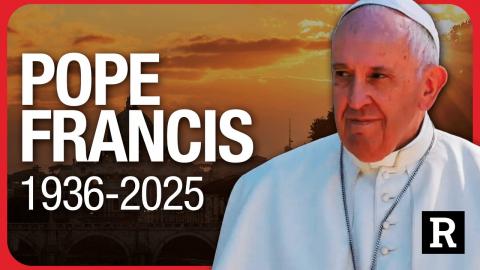
 Redacted News
Redacted News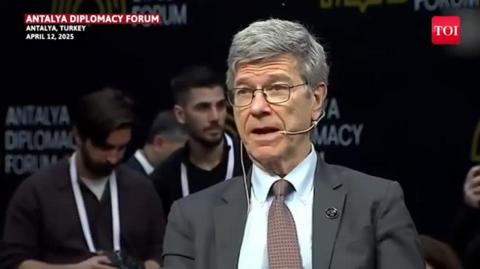
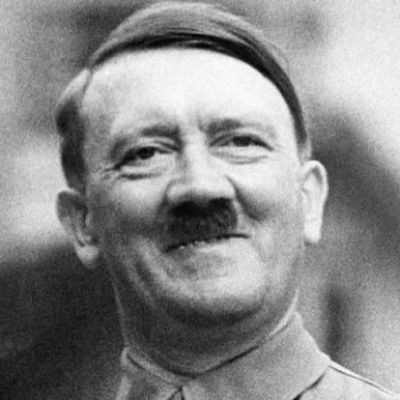 Life_N_Times_of_Shane_T_Hanson
Life_N_Times_of_Shane_T_Hanson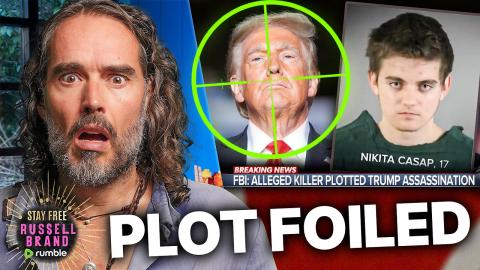
 Russell Brand
Russell Brand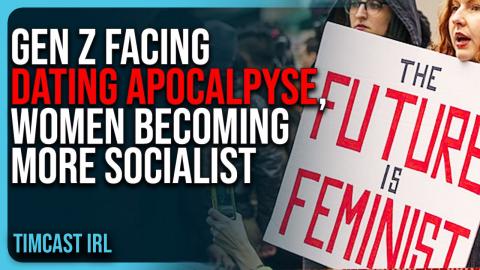
 Timcast IRL
Timcast IRL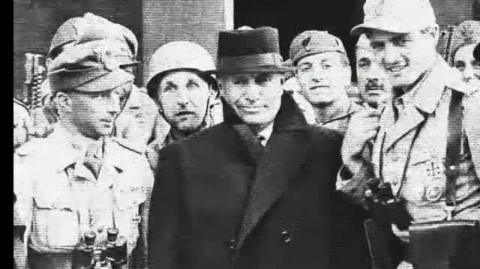
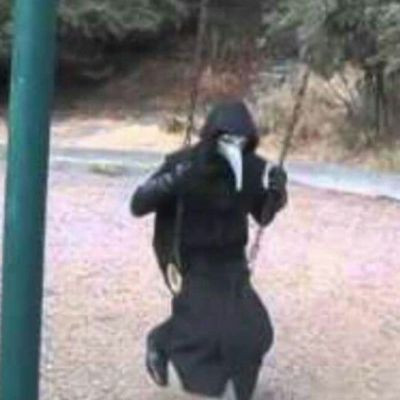 Sant77
Sant77

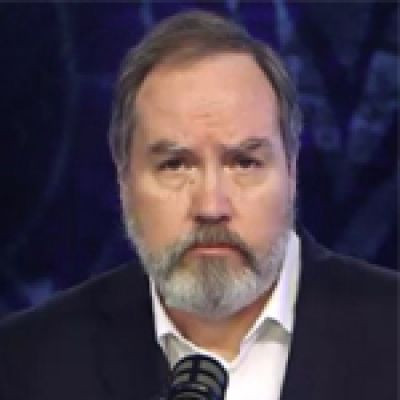 The David Knight Show
The David Knight Show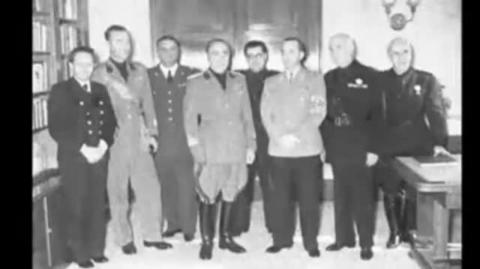
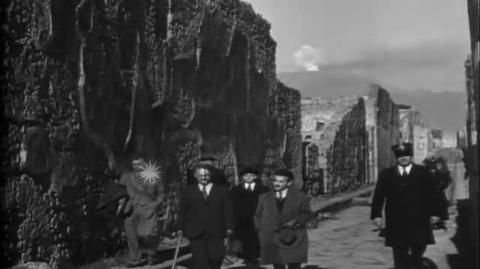
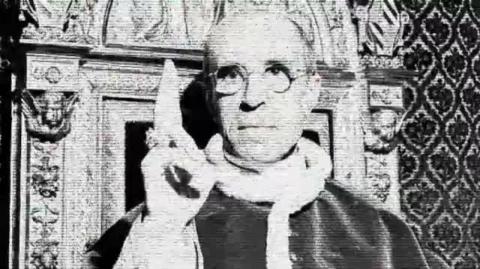

 TheQuartering
TheQuartering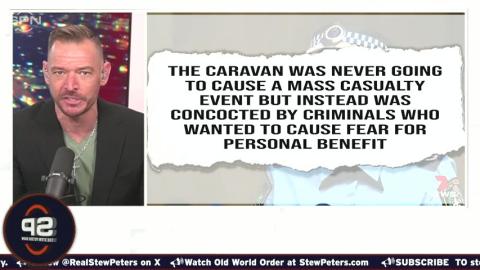


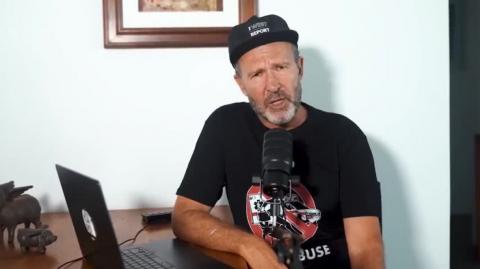
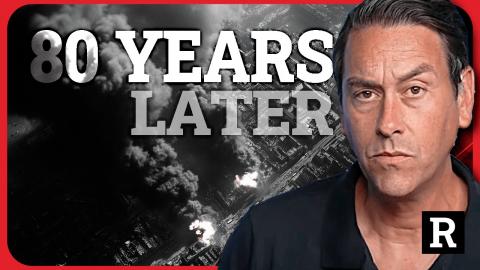

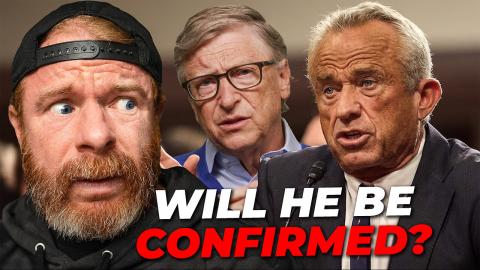
 AwakenWithJP
AwakenWithJP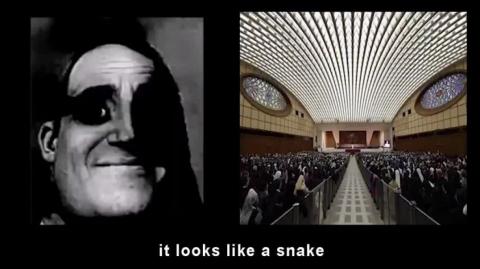
 Ozmosis
Ozmosis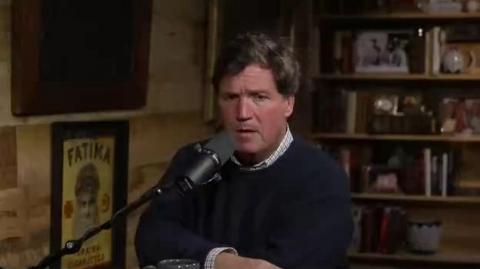
 Elgato_Weebee
Elgato_Weebee

Log in to comment